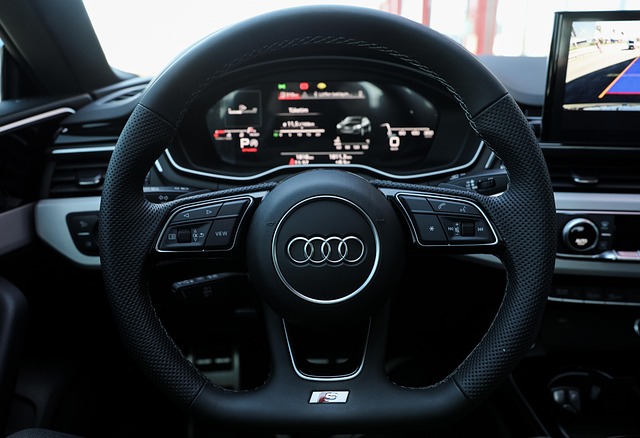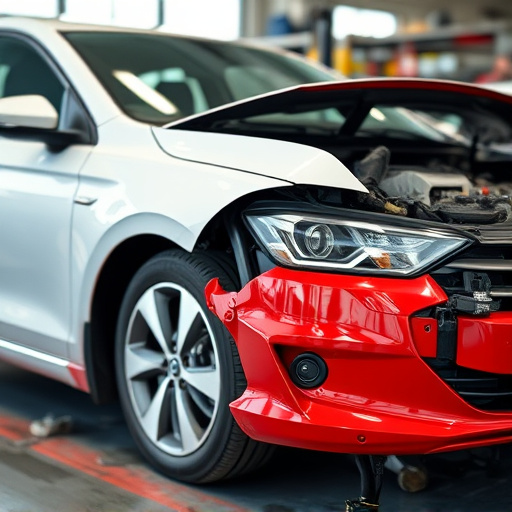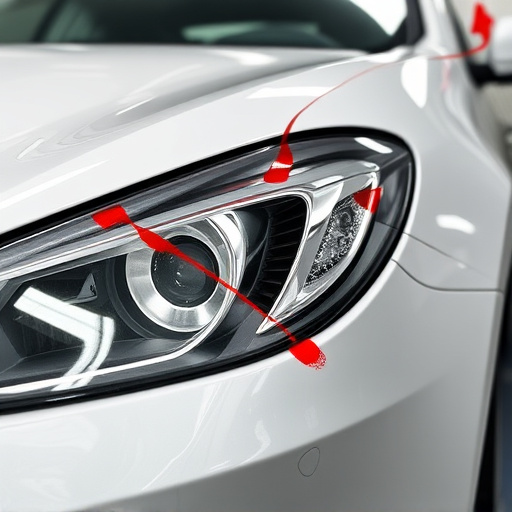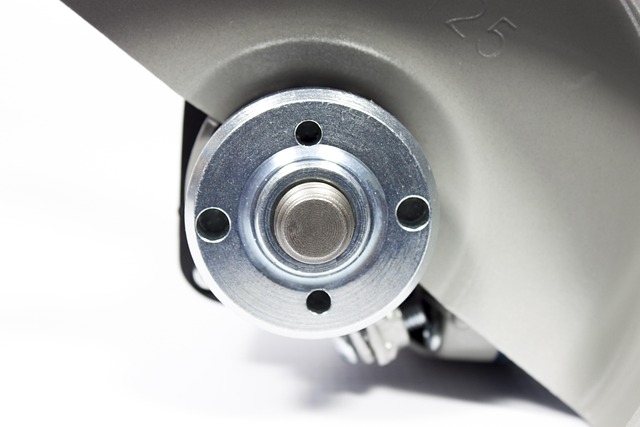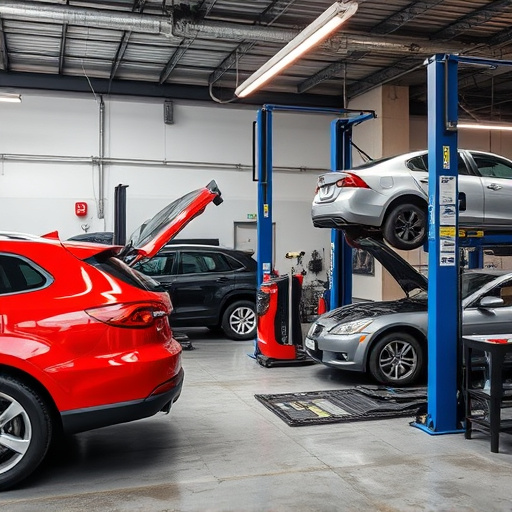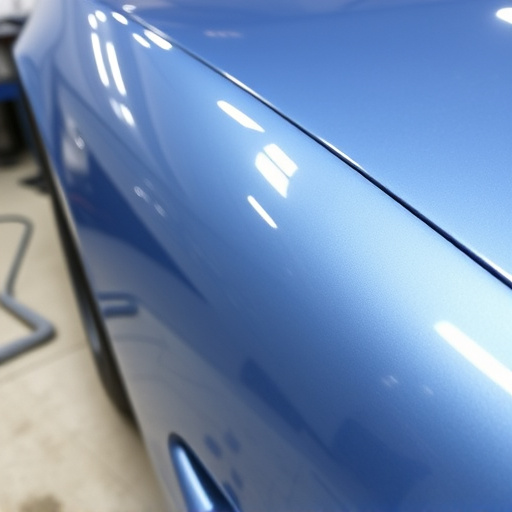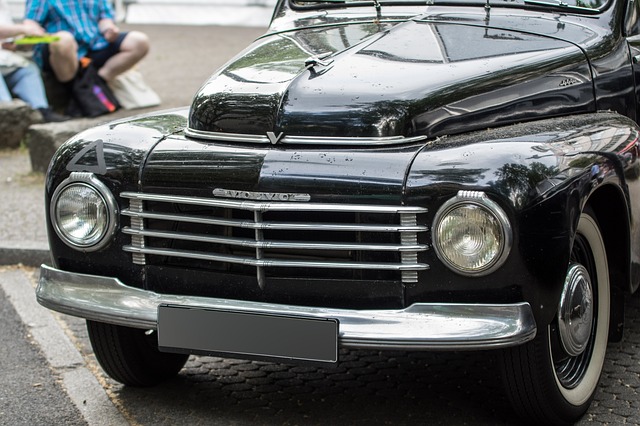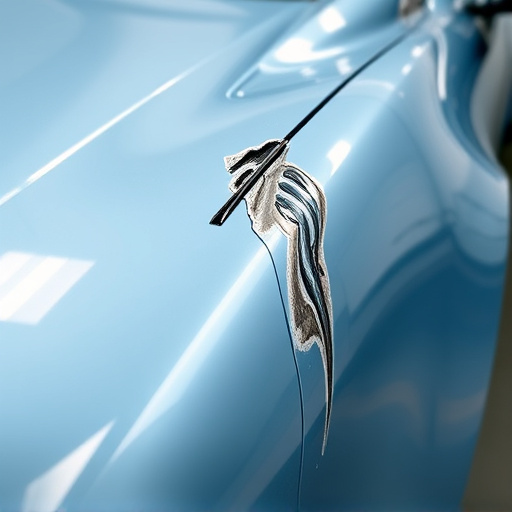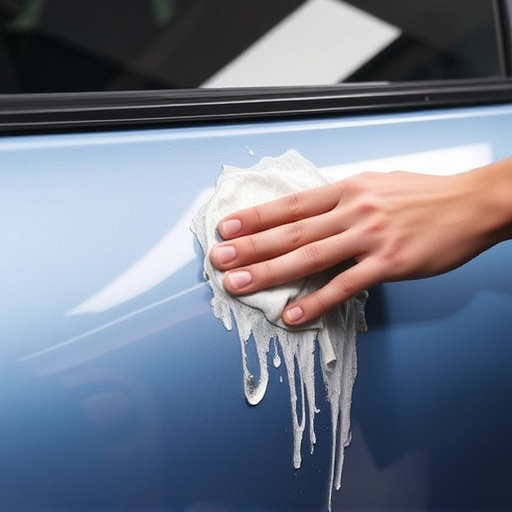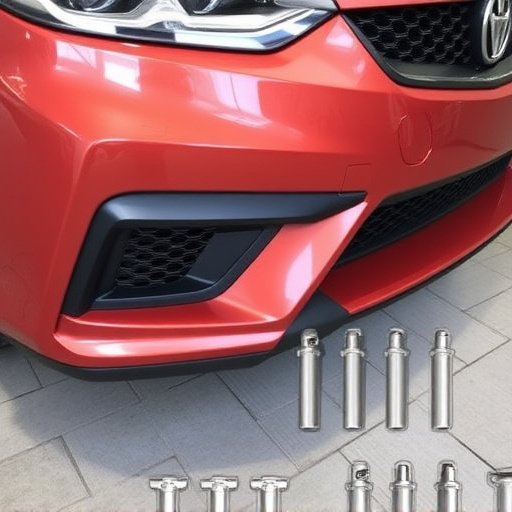Metal fabrication collision processes, vital for industries like automotive, aerospace, and construction, shape metal parts through welding, bending, and cutting. Each metal has unique properties affecting product integrity. Quality Control (QC) is crucial for maintaining reliability and safety, preventing defects, enhancing performance, improving road safety, fostering customer trust, and ensuring regulatory compliance. Achieving accuracy requires comprehensive strategies: QC across stages, machinery calibration, standardized procedures, advanced measurement tools, random sampling, and rigorous testing, as seen in car restoration and vehicle repair industries.
In the precise realm of metal fabrication, collision processes play a pivotal role in shaping components with unparalleled accuracy. However, ensuring the integrity of these intricate operations is paramount to achieving superior product quality. Quality control (QC) emerges as a vigilant guardian, meticulously scrutinizing every stage of metal fabrication collision processes. This article delves into the critical importance of QC, exploring its profound impact on product reliability and detailing best practices to maintain accuracy and consistency in this dynamic industry.
- Understanding Metal Fabrication Collision Processes
- The Impact of Quality Control on Product Reliability
- Best Practices for Ensuring Accuracy and Consistency
Understanding Metal Fabrication Collision Processes

Metal fabrication collision processes are intricate procedures that involve shaping metal components through various techniques such as welding, bending, and cutting. These processes are fundamental to industries like automotive, aerospace, and construction, where precision and strength are paramount. Understanding these collisions involves recognizing how different metals interact under pressure, heat, and force. Each metal has unique properties, including melting points, tensile strengths, and corrosion resistances, which can significantly impact the final product’s integrity and durability.
In the context of auto repair near me or a collision center, metal fabrication collision processes are crucial for repairing damaged vehicles. Techniques like panel replacement, frame straightening, and body painting (car paint repair) rely on precise calculations and quality control to ensure that the vehicle not only looks as good as new but also maintains its structural integrity. Skilled technicians employ advanced equipment and adhere to strict standards to manage these collisions effectively, preventing further damage and ensuring customer satisfaction.
The Impact of Quality Control on Product Reliability

In metal fabrication collision processes, Quality Control (QC) plays a pivotal role in ensuring product reliability and safety. Without rigorous QC measures, the final products risk structural integrity issues that can have severe consequences, particularly in industries like automotive. Implement robust QC protocols significantly reduces the likelihood of defects and variations, enhancing the overall performance and longevity of metal components used in vehicles, thereby enhancing road safety for all.
Tire services, auto collision centers, and car repair services heavily rely on consistent quality to maintain customer satisfaction and regulatory compliance. A meticulous QC process identifies potential problems early, preventing costly rework or recalls later. This proactive approach not only streamlines operations but also fosters trust among consumers, positioning metal fabrication companies as leaders in their field who prioritize both quality and safety in every collision process.
Best Practices for Ensuring Accuracy and Consistency

In metal fabrication collision processes, best practices for ensuring accuracy and consistency involve a multi-faceted approach. First, implementing stringent quality control measures throughout each stage of production is paramount. This includes regular calibration and maintenance of machinery to ensure precision cutting, bending, and welding. Standardized operating procedures (SOPs) should be established and strictly adhered to, covering everything from material handling to final inspection.
Additionally, employing advanced measurement tools such as laser scanners and 3D cameras can help detect even the slightest deviations from specifications. Random sampling and thorough testing of finished components further reinforce consistency. For instance, in car restoration or vehicle repair scenarios, where metal fabrication collision processes are frequently employed, these best practices not only guarantee high-quality outcomes but also ensure that each vehicle is restored or repaired to its original manufacturer’s standards, enhancing safety and customer satisfaction.
Quality control is a cornerstone in metal fabrication collision processes, ensuring product reliability and consistent performance. By implementing best practices that encompass rigorous testing, precise measurement, and continuous improvement, manufacturers can mitigate defects and variations, leading to superior-quality outcomes. Investing in robust quality control measures not only enhances customer satisfaction but also fosters innovation and competitiveness within the metal fabrication industry.
